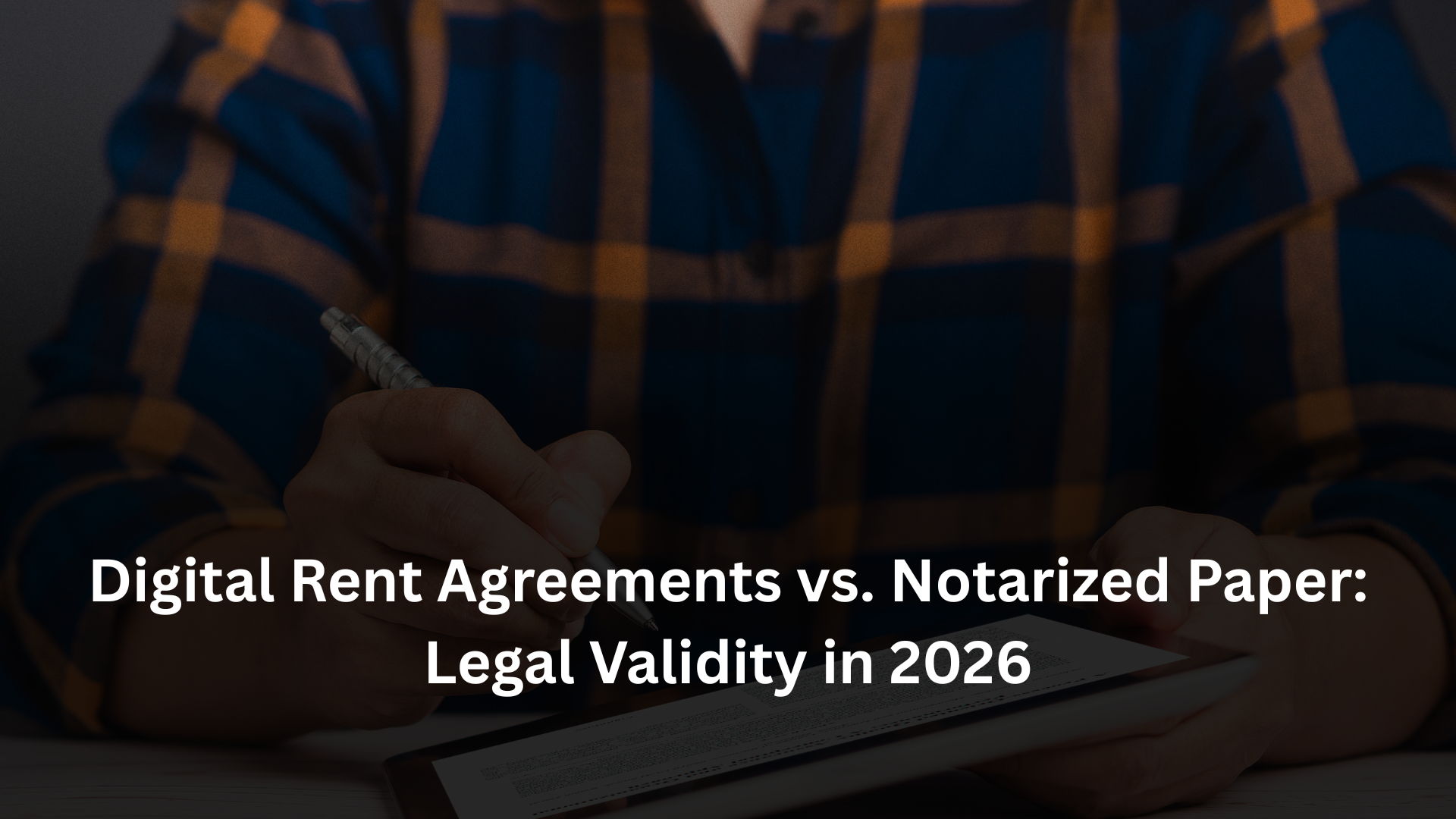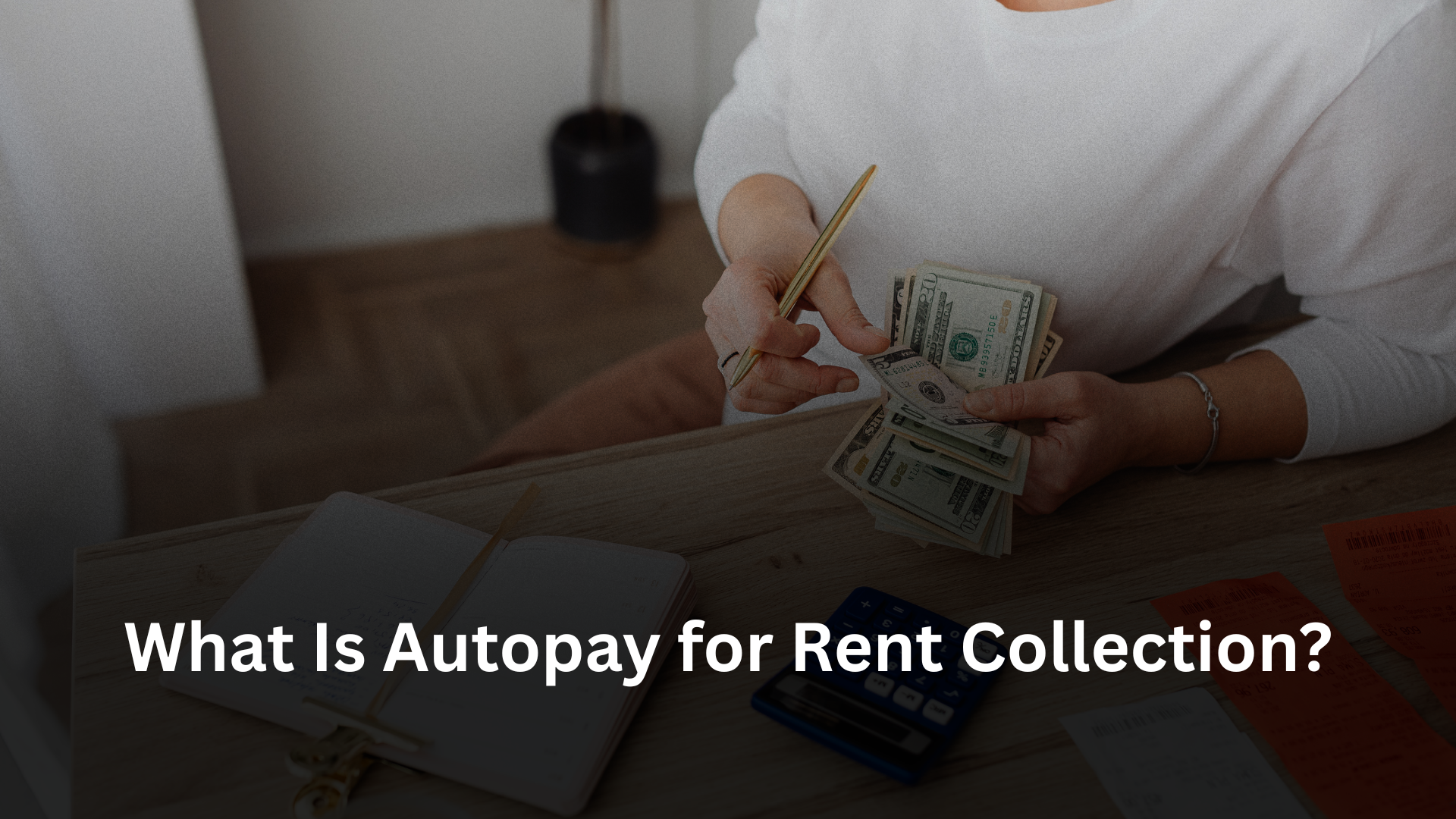Market Trends
Haryana Rent Control Act 1973: Fair Rent and Tenant Rights
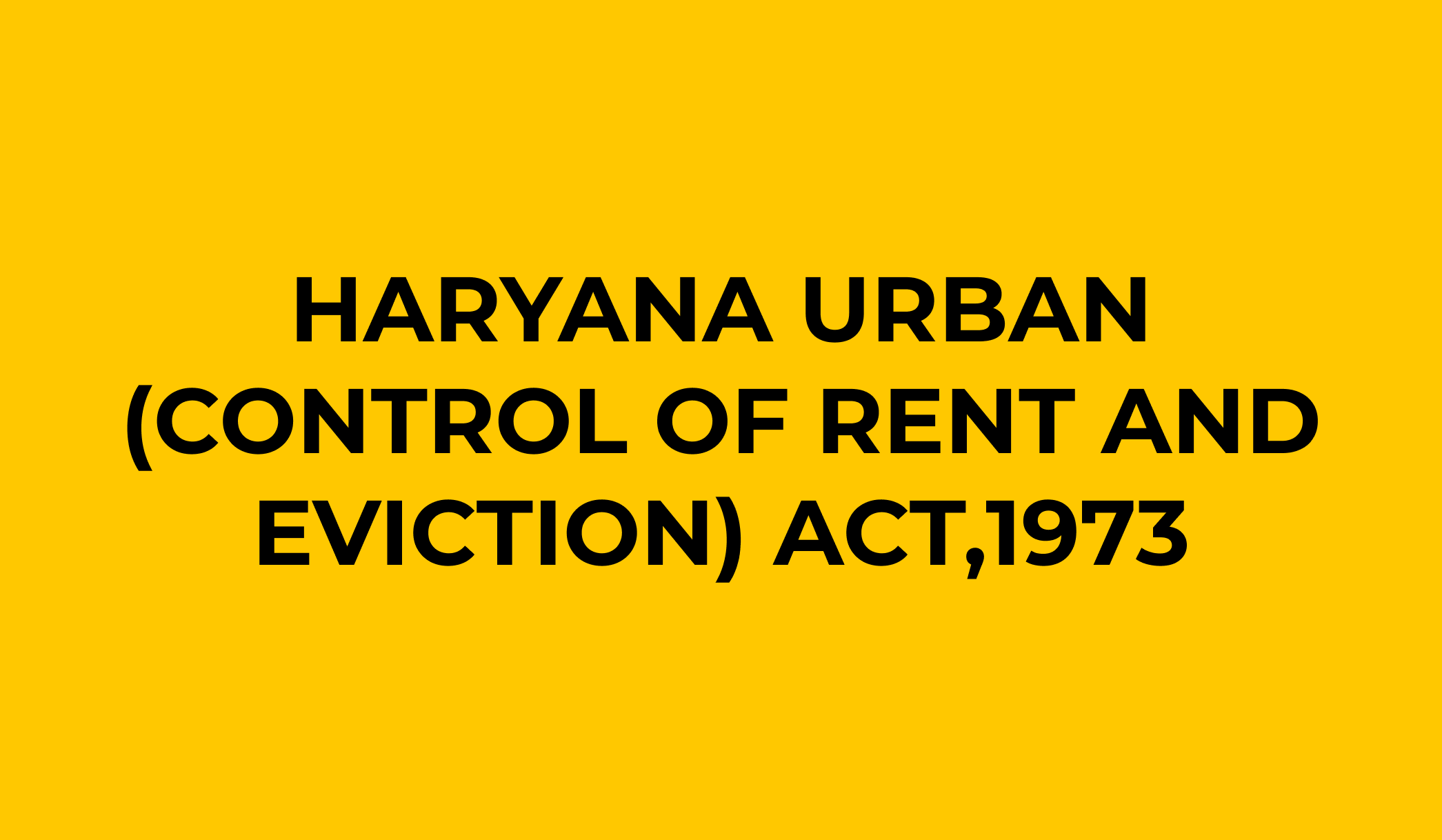

Written by
Anil Kandpal
Read Time
7 min read
Posted on
October 17, 2023
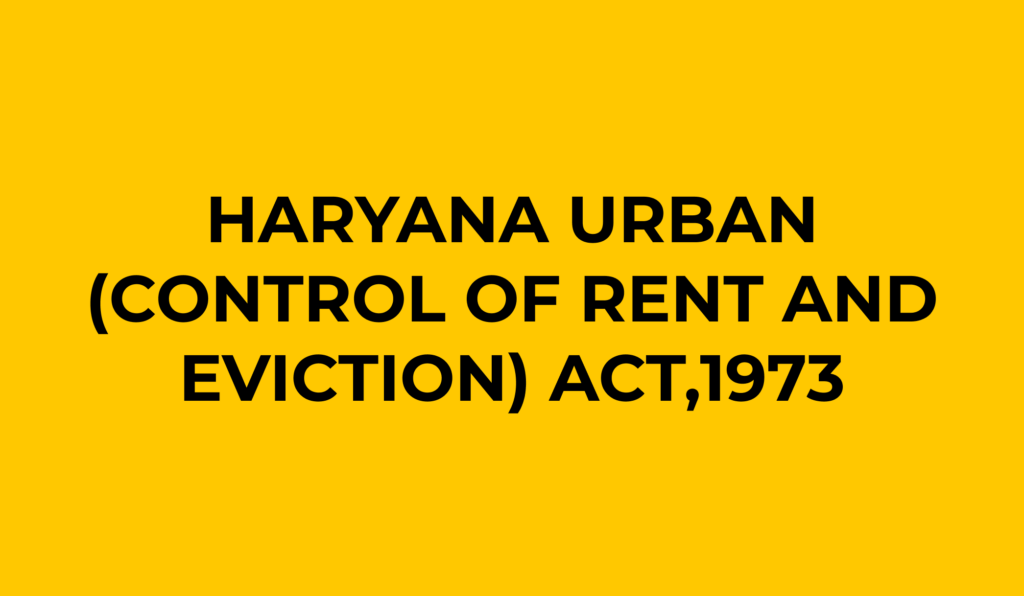
INTRODUCTION
Rent hikes in Haryana are subject to the Haryana Urban(Control of Rent and Eviction)Act, 1973. The act remains in operation only in Haryana’s urban areas and not in the cantonment area. The act doesn’t apply to those buildings whose construction was completed on or within a time period of ten years from the date of starting of this act. The Act came into force on April 27, 1973 and is also called the Haryana Rent Control Act.
PURPOSE OF HARYANA URBAN RENT CONTROL ACT
1. To regulate and control urban rents to prevent unfair rent increases by landlords.
2. To protect tenants’ rights by providing them with fair eviction.
3. The act prevents the exploitation of tenants by landlords and provides legal remedies for tenants facing unfair practices.
4. By regulating rent increases, it contributes to economic stability for both tenants and landlords.
5. Allows tenants to enjoy basic amenities like electricity, water supply, sewage etc.
MAJOR DEFINITIONS IN THE HARYANA URBAN RENT CONTROL ACT
1. LANDLORD – means any person for the time being entitled to receive rent in respect of any building or rented land whether on his own account or on behalf of another person from the tenant.
2. TENANT – means a person who pays rent to live in the property owned by somebody else.
3. CONTROLLER – any person who is appointed by the State Government to perform the functions of a Controller under this Act.
4. NON-RESIDENTIAL BUILDING – means a building being used mainly for the purpose of business or trade or partly for the purpose of business or trade and partly for the purpose of residence, subject to the condition that the person who carries on business or trade in the building resides there.
5. RESIDENTIAL BUILDING – the building which isn’t a non-residential building
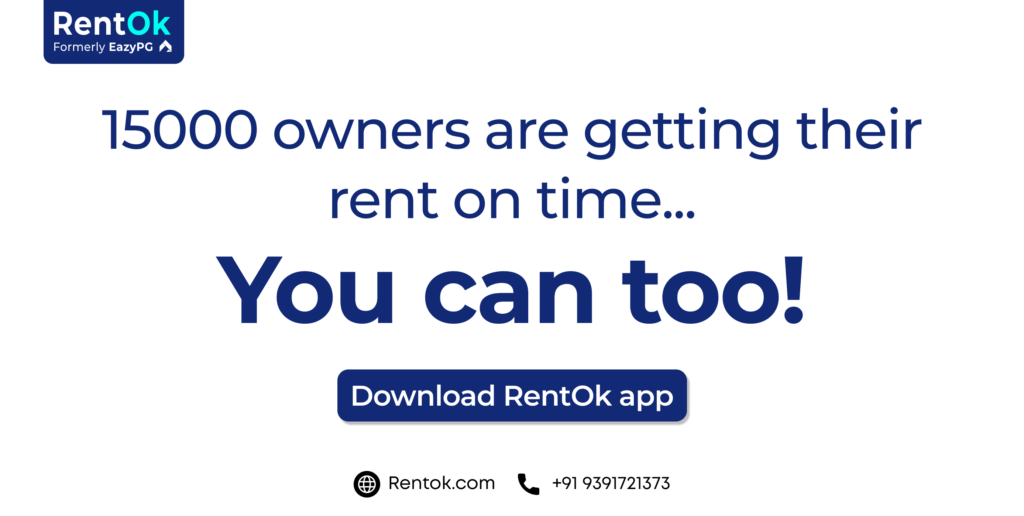
RIGHTS AND DUTIES OF LANDLORD AND TENANT UNDER HARYANA URBAN (CONTROL OF RENT AND EVICTION) ACT,1973
RENT
Controller must fix the rent of a building after conducting an enquiry on the following factors
a. If the building was constructed on or before 31st December 1961.
b. basic rent shall be determined on the basis of rent prevailing in the locality for similar buildings or rented land.
- In fixing fair rent, the Controller may allow an increase or decrease in the basic rent by not more than 25% based on rise in the price index.
- If the fair rent has been fixed under Section 4, then no increase or decrease in rent can be done. However, a rent increase is only allowed when there is any addition, alteration or improvement done at the landlord’s expense. Also, rent can be decreased if there is a reduction in any services.
- If the landlord is renewing the rental agreement with the same tenants, this would be treated as a case of existing tenancy as per the Act.
- For existing tenancies, the landlord cannot informally increase rent by 12% after the agreement period ends.
- The rent can only be increased if the landlord applies to the Controller and gets the fair rent revised under Sections 4 or 5 of the Act.
- A unilateral increase of 12% without the Controller’s approval is not permitted under the Act. The tenant can refuse to pay the arbitrary increase.
- If the landlord insists on a 12% increase without due process under the Act, the tenant can approach the Controller for resolution. The Controller can direct the landlord not to charge more than the existing fair rent.
- Therefore, for existing tenancies in Haryana, the landlord has to strictly follow the fair rent fixation/revision process laid out in the Act for any rent increases after the agreement period. Unilateral increases are not allowed.
DEPOSIT OF RENT
If a landlord refuses to give a receipt for rent payable, the tenant may apply to a Controller for leave to deposit the rent. If the Controller is satisfied, after examining the issue the landlord provides a notice.
AMENITIES
A landlord should provide all the basic amenities like electricity, sewerage water supply etc provided by the State government or local authority. If the landlord fails to provide the amenities within 30 days or 90 days of receiving requests from the tenant, the tenant can apply to the controller. A landlord cannot cut off the amenities without sufficient cause; if it is done the controller may take charge. Also, if the tenant is found right they are entitled to deduct expenses from the rent till the total amount is not realised, provided the rate of deduction should be less than 50% of the rent amount.
CONVERSION OF A BUILDING
A tenant is not allowed to convert a residential building into a commercial space unless he takes written permission from the Controller.
NECESSARY REPAIRS BY THE LANDLORD
The landlord must make the required repairs other than structural alterations. If this is not followed, the Controller can give an order in writing that such repairs should be done and the cost incurred should be deducted from the rent payable.
WHEN CAN RENT BE INCREASED BY THE LANDLORD
Rent can be increased by the landlord in the following cases :
- If a local authority levies an increase in the tax on the building subject to the condition that the amount should not exceed the increased tax amount
- Rent can be increased by 8% only if extra amenities are provided by the landlord. These amenities do not include basic amenities of electricity, water and sewage.
CASES WHEN THE LANDLORD CAN EVICT THE TENANT
- If a tenant has not paid rent within 15 days after giving notice or after the expiry of the tenant agreement. A tenant will have to pay rent and interest, which the Controller will calculate. The interest on the arrear is 8% per annum. A tenant should pay all the arrears within the time.
- If the tenant uses the property for purposes other than for which it was leased.
- The tenant is found guilty of a nuisance act that caused trouble to other residents.
- The landlord can notify the tenant to vacate the property if the landlord or his son wants the property for commercial purposes. However, this is only possible if the landlord does not own any other property in an urban area.
- A tenant has stopped using the property for more than four months without a reasonable cause.
ORDERS IF TENANT IS FOUND GUILTY
- If the tenant has not paid the rent to the landlord even after notice or is found guilty of nuisance etc, the Controller can put the landlord in possession of the property.
- Reasonable time can be given to the tenant by the controller to vacate the property provided the time cannot extend beyond 3 months.
ORDERS IF THE LANDLORD IS FOUND GUILTY
- Controller can ask a landlord to give possession of the property to the same tenant if his son or he has not occupied the property within 12 months of possession or if the landlord rents away the property to any other tenant.
- The landlord can be asked for compensation of Rs 500 if the tenant’s eviction is on silly grounds
PENALTIES UNDER Haryana Rent Control Act
- Any person contravenes Sub-section (2 of section 8) which states that no landlord should recover the amount of cess or taxes of local authority from the tenant OR sub-section (1) of section 10 stating A landlord cannot cut off or withhold the basic amenities OR sub-section (1) of section 11 stating if a property is not returned to the landlord for his or his son’s use OR sub-section (1) of section 21 which states that a landlord and tenant should furnish particular details related to building or land with the Controller will be punishable with a fine of Rs 1000
- A landlord shall be punishable with up to two years imprisonment or fine or both if they contradict Section 6 which suggests that a landlord cannot charge higher than the fair rent.
CONCLUSION
The Haryana Rent Control Act is a crucial piece of legislation governing the rental market in the state. It has aimed to strike a balance between the rights of landlords and tenants by regulating rent increases, eviction procedures, and other key aspects of tenancy. While the Act provides some protection for tenants, it also ensures that landlords have certain rights and remedies.
Check more Renting Blogs
Best PG manager app, Best rent collection app in India, Rent agreement format, Top 5 PG in Gurgaon, free rent agreement, online police verification

About the Author
Anil Kandpal
Anil Kandpal is the Head of Marketing at RentOk and a seasoned property rental industry expert with over 8 years of hands-on experience in the PG, hostel, and co-living sectors. Since 2017, Anil Kandpal has built deep expertise across every facet of the property rental ecosystem. He founded Capho, a PG and hostel aggregator platform that connected renters with quality accommodation options across India. Following this, he spent two years as an operator, managing his own co-living and PG business, giving him invaluable first-hand insights into the challenges faced by property owners and managers. Currently, Anil Kandpal leads growth and marketing strategies at RentOk, a B2B SaaS property management platform, where he helps PG owners, hostel operators, and property managers streamline their operations and scale their businesses. His unique perspective combines entrepreneurial experience, operational expertise, and data-driven marketing strategies, making him a trusted voice on topics including PG management, rental property operations, tenant acquisition, and PropTech solutions.
...read moreAnil Kandpal is the Head of Marketing at RentOk and a seasoned property rental industry expert with over 8 years of hands-on experience in the PG, hostel, and co-living sectors. Since 2017, Anil Kandpal has built deep expertise across every facet of the property rental ecosystem. He founded Capho, a PG and hostel aggregator platform that connected renters with quality accommodation options across India. Following this, he spent two years as an operator, managing his own co-living and PG business, giving him invaluable first-hand insights into the challenges faced by property owners and managers. Currently, Anil Kandpal leads growth and marketing strategies at RentOk, a B2B SaaS property management platform, where he helps PG owners, hostel operators, and property managers streamline their operations and scale their businesses. His unique perspective combines entrepreneurial experience, operational expertise, and data-driven marketing strategies, making him a trusted voice on topics including PG management, rental property operations, tenant acquisition, and PropTech solutions.






